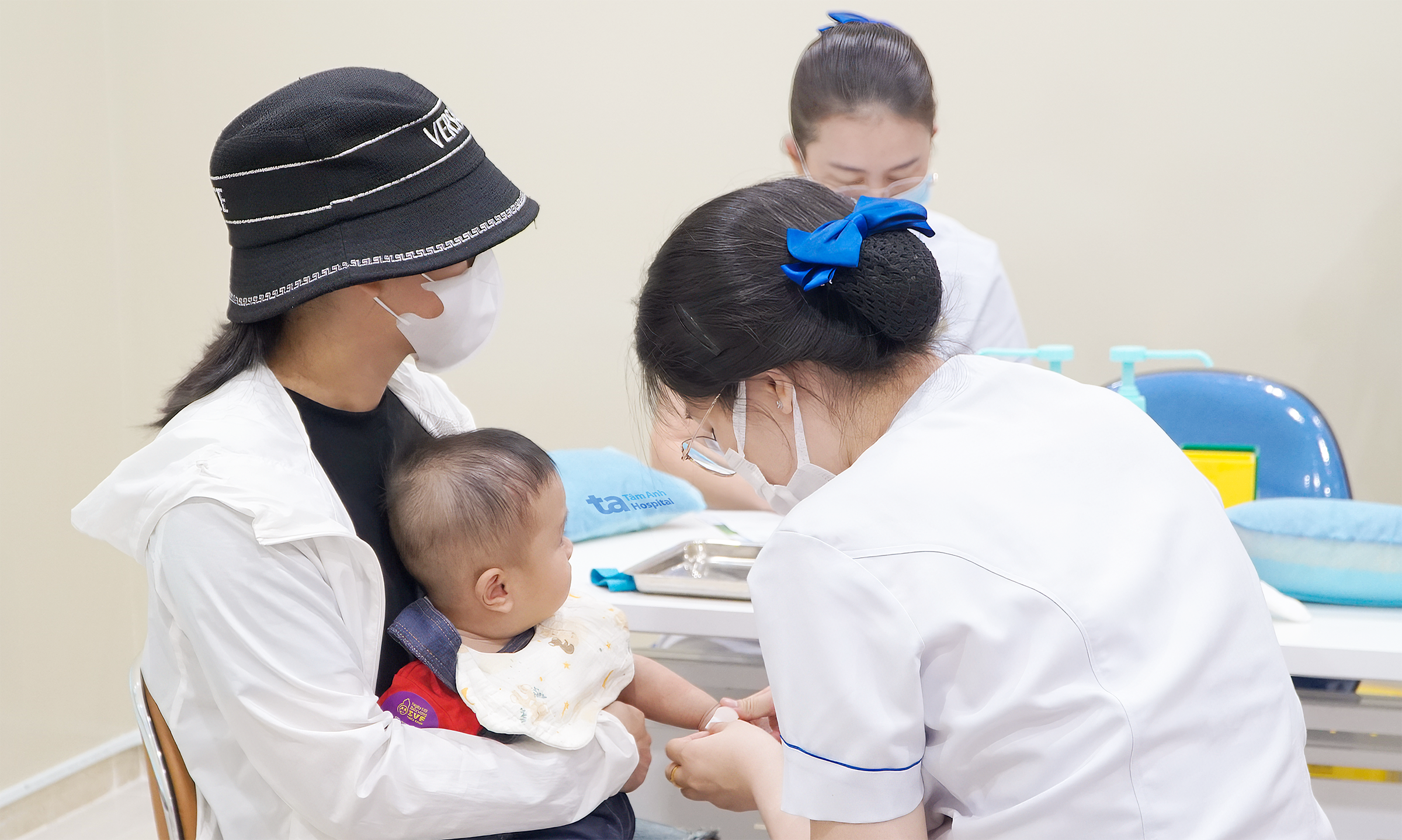Dr. To Vu Thien Huong of the Neonatal Center at Tam Anh General Hospital in TP HCM advises parents to take newborns with acute respiratory infections to the hospital for examination and treatment guidance. Depending on the specific case, cause, and severity of the illness, the doctor will prescribe appropriate treatment.
If the child is diagnosed with a bacterial infection, the doctor may prescribe suitable antibiotics. In cases of viral upper respiratory tract infections, treatment primarily focuses on managing symptoms. The doctor may prescribe cough syrup, pain relievers, and fever reducers in appropriate doses. These medications help alleviate symptoms and make the child more comfortable.
All medications used for newborns with acute respiratory infections must be administered according to the doctor's prescribed dosage. Parents should not self-medicate as this can worsen the illness, cause complications, and endanger the child. Proper care for newborns with acute respiratory infections helps shorten the treatment process and promotes faster recovery.
Nasal hygiene
Use a soft tissue to wipe the baby's nose if there is a lot of runny mucus. If the baby's nose is congested or blocked, parents can thin the nasal mucus by putting an appropriate amount of saline solution into each nostril. Then, gently suction the mucus with a specialized nasal aspirator or use a soft tissue or cotton swab to clean the baby's nose. Clear the baby's nose before feeding to prevent thick, sticky mucus from causing blockage and difficulty feeding.
Do not overuse nasal rinsing, as this can affect the baby's nasal mucosa. Avoid putting garlic juice in the baby's nose, a folk remedy, as this can damage the nasal mucosa. When the baby has a stuffy or runny nose, parents should hold the child upright, with the head higher than the body when lying down.
Maintaining a stable body temperature
A newborn's body cannot yet regulate its temperature to match the surrounding environment. Parents should keep their baby warm when the weather turns cold and dress them in light, breathable clothing during summer. Avoid placing the baby directly in front of a fan or air conditioner, or letting the wind blow directly onto them.
 |
Medical staff take blood sample from a child. Illustrative photo: *Tam Anh General Hospital* |
Reducing fever properly
Many children with acute respiratory infections experience fever. If the child has a mild fever, before taking them to the doctor, adults should implement non-medication fever-reducing measures such as dressing them in thin, absorbent clothing, encouraging frequent breastfeeding, and sponging them down with lukewarm water. If the fever is high, parents should immediately take the baby to the hospital for appropriate care. Do not give fever-reducing medication to newborns without a doctor's prescription, and monitor the child's temperature every 30-60 minutes.
Alleviating coughs and vomiting
Coughing in newborns can be caused by spasms or excessive secretion of mucus in the throat. Depending on the cause, the doctor will prescribe medication with different dosages. Do not give cough medicine or cough syrup to the baby without the doctor's consent. Avoid treating coughs in newborns with honey or sugar-steamed kumquat juice, as these can cause poisoning.
If the baby vomits, parents should lay them on their side with their head turned to one side. After vomiting, clean the baby's mouth and nose with a soft cloth and warm water, and change them into clean, comfortable clothes. If the newborn vomits frequently or shows signs of severe dehydration such as lethargy, refusal to feed, high fever, convulsions, rapid breathing, or difficulty breathing, parents should take the baby to the hospital immediately.
Nutritional supplements
Sick newborns may be tired and feed less. Mothers should supplement their baby's nutrition by dividing feedings throughout the day and increasing the frequency of breastfeeding. Breast milk also provides antibodies, helping the baby fight off pathogens. For newborns fed with formula, mothers should consult a doctor about appropriate nutritional supplements.
Gian Don - Ngoc Chau
| Readers can ask questions about children's illnesses here for doctors to answer. |












